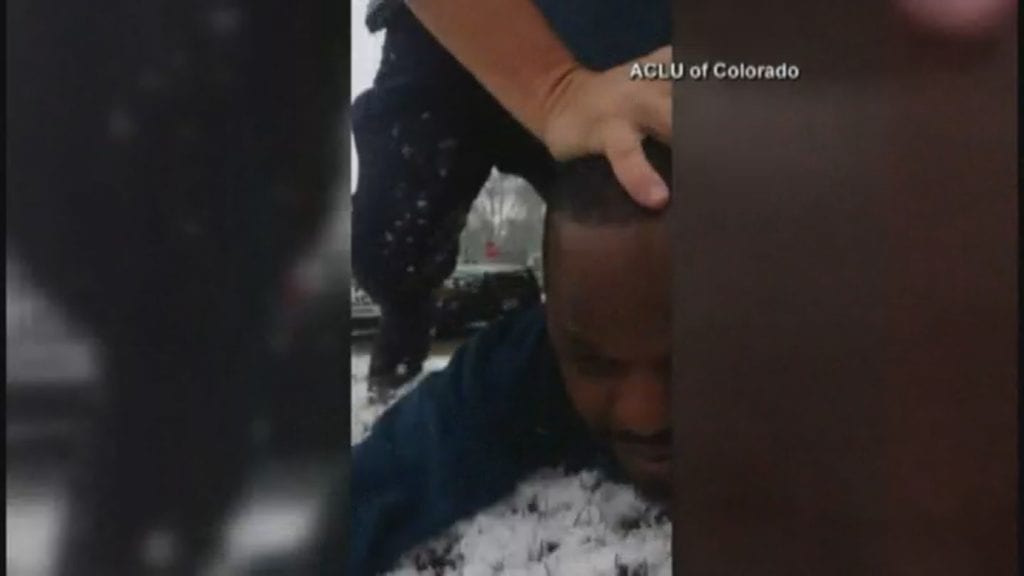
COLORADO SPRINGS – In March of 2015, two black men were pulled over for a traffic stop by Colorado Springs Police Officers. Benjamin Brown, the driver, was asked to step out of the car where he was patted down and placed in handcuffs. It motivated his brother Ryan to get out his cell phone and start a video recording of what was taking place. The officers then forcibly removed Ryan from the car and put him in handcuffs as well.
“He was pulled from his vehicle, thrown to the ground, his face was pushed into the snow and his camera was taken out of his hand and thrown onto concrete,” said John Krieger, the Director of Campaigns for the ACLU of Colorado.
The arrests led to a civil rights lawsuit against the CSPD in 2016. The City of Colorado Springs reached a settlement with the Browns in 2017 for $212,000. Several CSPD policies were also changed as part of the settlement.
An ACLU press release about the settlement reads:
“Official CSPD policy now clearly identifies the constitutional requirements that must be met before an officer may conduct a pat-down search. CSPD removed policy language that gave undue weight to an individual’s refusal to cooperate as a factor in establishing probable cause for a search or arrest. CSPD policy on recording police was also strengthened to reflect constitutional and statutory protections against unjustified seizures of electronic devices.
Krieger said the video recording was critical to their case.
“If that camera had broken, been destroyed in that interaction, all we would have was the police report,” he explained. “And what the police report said is there was no recollection of the interaction of any use of force of any kind.”
The incident motived the civil rights group to invest in the Mobile Justice app. Originally developed by the ACLU of New York, the smartphone application records video on both an individual’s phone as well as on servers at the ACLU in Denver.
“The recording is sent directly to ACLU Colorado in real time so that it cannot be deleted or destroyed,” Krieger explained.
App users can also send reports to the ACLU with details about the activity they captured on the video. There is also a witness function that allows users to broadcast their location and receive notices when someone else is using the app nearby.
Six months after the settlement with the Browns, another police encounter in Colorado Springs would prompt another lawsuit.
Terrell Clayton was recording video outside of the Falcon substation in November of 2017 when he was approached by officers who informed him that he was acting suspiciously. The officers took Clayton’s camera and detained him. He sued and the City settled the case last year for $41,000.
What makes the Clayton case notable is that state lawmakers changed the law in 2015 to expressly recognize the right of citizens to record police activity in a public place. The law also prohibits officers from seizing an individual’s camera or phone without consent, a search warrant or a subpoena.
In May, the CSPD posted General Order 1551 on its website that affirms, “taking photographs or recording from a public place in and of itself does not constitute suspicious activity.”
The general order cautions the public to not interfere with the on-going police activity. Krieger shared that same advice.
“You can record, in a public place, anything you can see with your eyes,” he said. “We discourage people from interfering with an active pursuit, or in any way really, anything with a police officer in commission with their duty, but the recording itself is not interfering.”
The Mobile Justice App is free to download. However, there are 27 different versions for specific states. So, interested users in Colorado are encouraged to download Mobile Justice: Colorado.
From the App Store – https://itunes.apple.com/app/id1031612987
From Google Play – https://play.google.com/store/apps/details?id=org.aclu.mobile.justice.co


